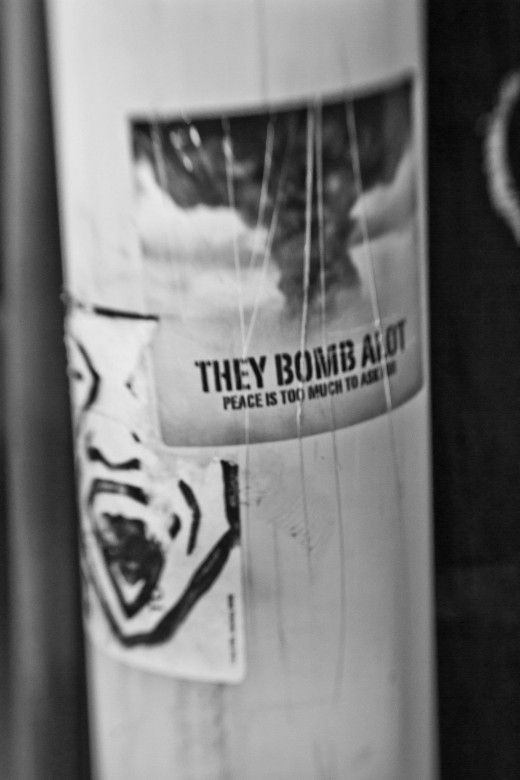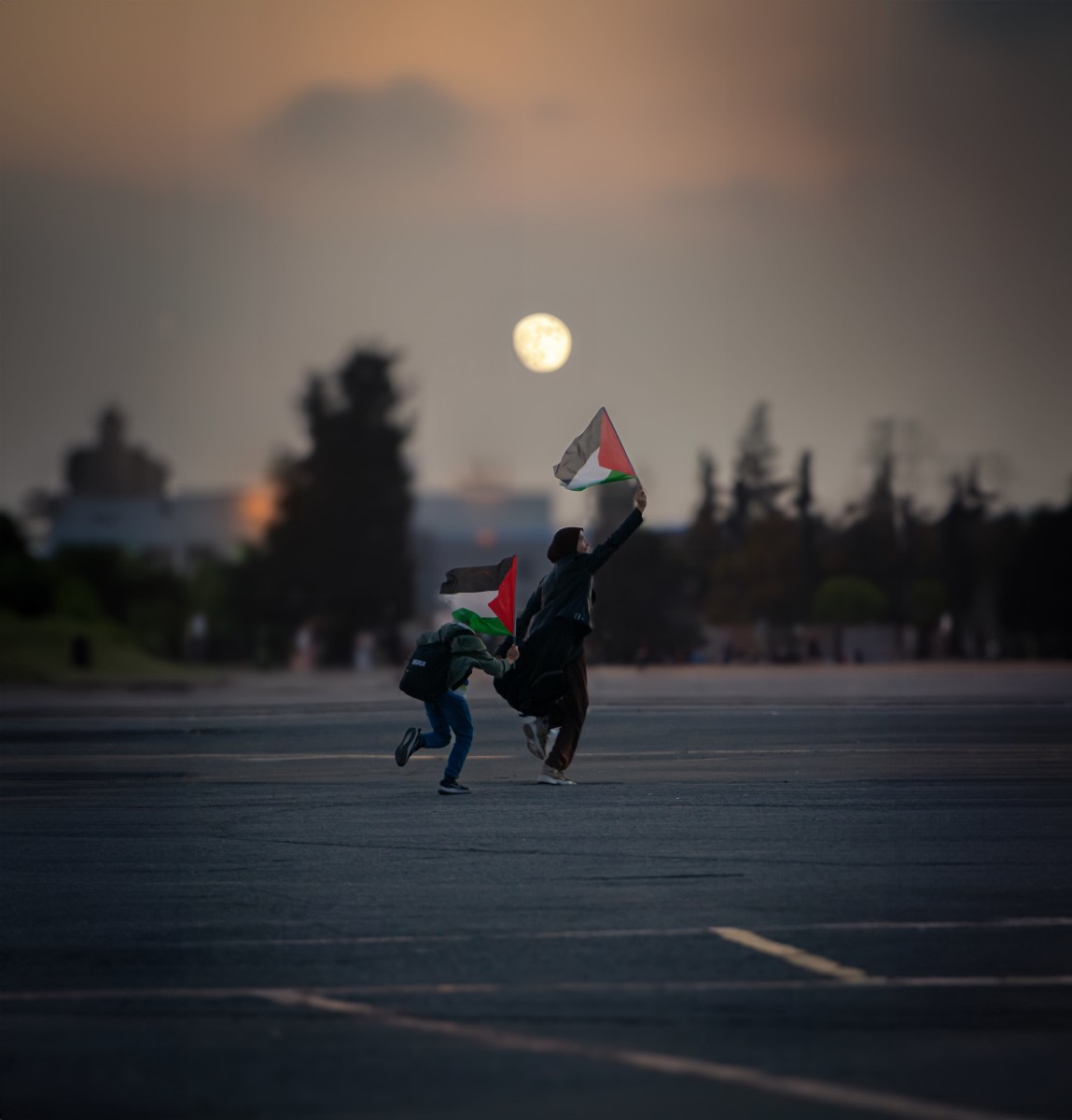Is Religion the Leading Cause of War?

War, Beliefs and Tosteson....
Even when deconstructed, wars that may not seem to be religiously oriented tend to come down to religion in the end. Countless wars fought throughout history were shown to be the result of territorial disputes, ethnic and racial differences or other various non-religious factors.
When examined closely however, it was the poverty of the people that often caused them to revolt- poverty that was caused by religion. “Unlike many infectious diseases, the plague of war is not caused by some virus or bacterium or parasite, but rather by a pathogen that is even more potentially lethal: the beliefs created by the human mind” (Tosteson, 2003).
That statement by Tosteson is a powerful and heavy allegation- that human beliefs are more threatening and lethal to people than diseases. Can the human mind really be so powerful that it can manifest a war solely based on religious beliefs? History says yes.
A religious war is a war caused by, or justified by, religious differences. Religious wars can be traced back as far as the beginning of organized religions and have continued and still occur today.
Does Religion Cause War?
War and religion are two entities that have existed since the beginning of time. War is an organized and prolonged conflict between two or more opposing sides. Often, one or more of those sides are driven by religious thoughts and beliefs.
The questioning of the cause of war, as well as the questioning of others’ religious beliefs has gone on just as long as war and religion themselves. Many believe that the two are intertwined and that religion is usually the cause of most major wars.
In places like Palestine, Iran and throughout the Middle East, religion has been fueling wars and conflicts for centuries. There are even wars that are started within one specific religion over various beliefs or territorial rights- like the fighting between the Islamic sects in the Middle East. Because of the wide and prominent occurrence of wars in the name of “god”, many people tend to believe that religion can be a leading cause of war all over the globe.
Army's of God

Wars Past and Present
Between the 11th and 13th century, the Crusades occurred in Europe. The Crusades were a war between Christians and Muslims which centered around the city of Jerusalem and the Holy places of Palestine- a religiously motivated war that lasted a total of 702 years. The conflict between Palestine and Israel is both an ethnic conflict and a religious war that has been ongoing since the the 1950s and has caused a massive number of casualties over who owns the religious rights to Jerusalem.
In 1966, South Vietnam saw a period of civil unrest where the discrimination against the Buddhist population in the country created the growth of Buddhist institutions as they sought to participate in national politics and gain better treatment- as the Buddhist population continued to be ignored, a “Struggle Movement” formed in South Vietnam and civil unrest took over the northern part of the country. In Ireland, religious rivalries between the Protestants and the Catholics have caused civil unrest and violence for decades.
“Much of the conflict in Northern Ireland can be explained by the unstable balance of power between the two groups and the vulnerability this causes. Northern Ireland has a population of 1,577,836 (The Northern Ireland Census, 1991). Of these, 605,639 are Catholic 788,136 are other religions, mostly Protestant, and 174,061 are none or did not state” (Malignani Institute of Technology Staff).
And even in today’s society, examples like the September 11th terrorist attacks, the Boston Marathon bombings, the continued conflict in Israel and Palestine and the deepening clashes between Islamic sects- particularly the Sunnis and the Shiites- continue to reinforce the notion that religion does in fact lead to war.
Different Worlds, Different Religions

No Religion is Exempt
The previous examples show that no religion is excluded from any involvement in religious oriented wars.
Catholics, Christians, Protestants, Muslims, Jewish, Buddhist, and Hindu followers have all been tied to religious wars throughout history in one way or another.
This reinforces Tosteson’s theory that human beliefs are the most lethal pathogen in society- in one way, shape or form, a majority of major wars and violent attacks against innocent civilians have been in the name of religion.
The Crusades
Deconstructing religious wars belief by belief, it becomes obvious that the human mind can be a powerful motivating force in the cause of war. Looking at the history of the Catholic church, the Crusades were a brutal and violent time for the church that lasted over 700 years.
“The Crusades were expeditions undertaken- in fulfillment of a solemn vow- to deliver
the Holy Places from Mohammedan tyranny...The idea of the crusade corresponds to a political conception which was realized in Christendom from the eleventh to the fifteenth century. After pronouncing a solemn vow, each warrior received a cross from the hands of the pope or his legates, and was thenceforth considered a soldier of the Church. Crusaders were granted indulgences and temporal privileges, such as exemption from civil jurisdiction, inviolability of persons or lands” (Brehier, 1908).
The Crusades were a long and trying time for Europe, where Catholic ideologies dominated the area- causing wars, violence, and mass devastation.
Religion as Cause of War
Do you think religion is the leading cause of war?
Palestine and Israel
In Palestine and Israel, a heated conflict has been ongoing since the beginning of the 20th century. The conflict between Israel and Palestine has its roots as far back as the late 19th and early 20th centuries- sourcing from the birth of major nationalist movements among the Jews, as well as the Arabs, both geared towards attaining sovereignty for their people.
In 1947 the United Nations had to intervene on behalf of the Palestinian and Israeli people in hopes to decrease the conflict between the two sides. The United Nations partitioned the land into Arab and Jewish states- but once again, the two sides could not agree on the United Nation’s solution to the ongoing conflict, and war broke out. The conflict between Palestine and Israel continues today and the violence and crime associated with the conflict is rooted in religion.
Religion Based Terrorist Attacks
Religious based terrorist attacks are also a form of religious war, if one defines war as an organized conflict between two sides. These attacks are drastic in nature and often rooted in deep founded religious beliefs. If religion causes war, and terrorism is a form of war, then it can be assumed that religion be a leading cause of terrorism. “
The world's great religions all have both peaceful and violent messages from which believers can choose. Religious terrorists and violent extremists share the decision to interpret religion to justify violence, whether they are Buddhist, Christian, Hindu, Jewish, Muslim, or Sikh” (Zalman, 2008).
Examples of significant terrorist attacks rooted in religion include the assassination of Egyptian president Anwar Sadat, and suicide bombings in Israel in the name of Islam, the attacks by Zionist militants on the British in the 1940's which were rooted in Jewish beliefs and the attacks by reconstructive Christian’s in the name of God aimed at homosexuals and women committing abortion.
Fixing the World

Is There a Solution?
History is a great indicator that religion may not be the only cause of war, but in many cases, if it is not the driving force of the conflict, in some way, shape or form, religious ideologies play a role in most large conflicts worldwide.
The fact that every single religion has a history of war caused by specific beliefs echoes the statement that the human mind is the most dangerous and lethal weapon facing the globe. It is these strongly held beliefs that motivate people to cause such vicious and cruel acts.
There is no question that when people have contrasting beliefs, conflict will arise. Religious wars have existed for centuries- and for centuries presidents, kings, politicians, historians and more have tried to find a way to end the constant conflicts and disagreements between the opposing sides. The fact is, there may be no solution.
Even if it can be 100% proven that religion is the cause of war, that does nothing to end the conflict and violence that has been going on for centuries. In an ideal world, everyone would learn to get along- but that is not the world in which we live- and the fact is, people are going to continue to have this ideals and beliefs because religion is the opiate of the masses. As long as religion exists, religious wars will exist- it is an unfortunate inevitability.








